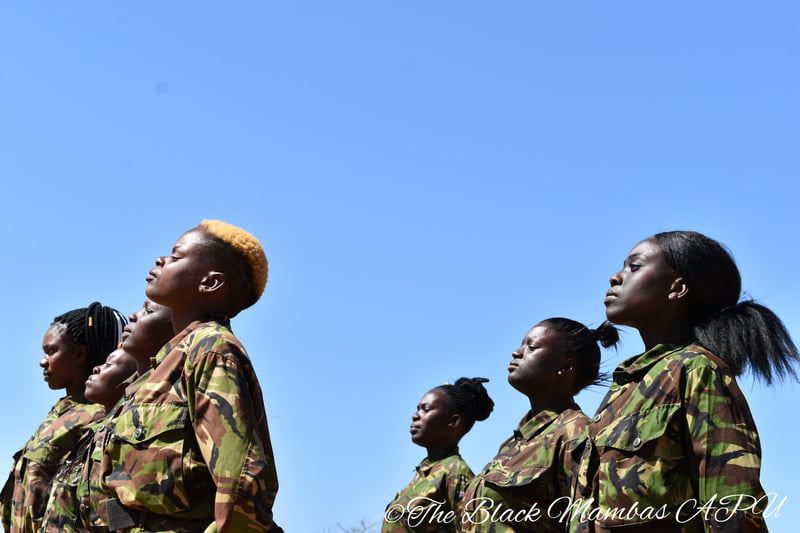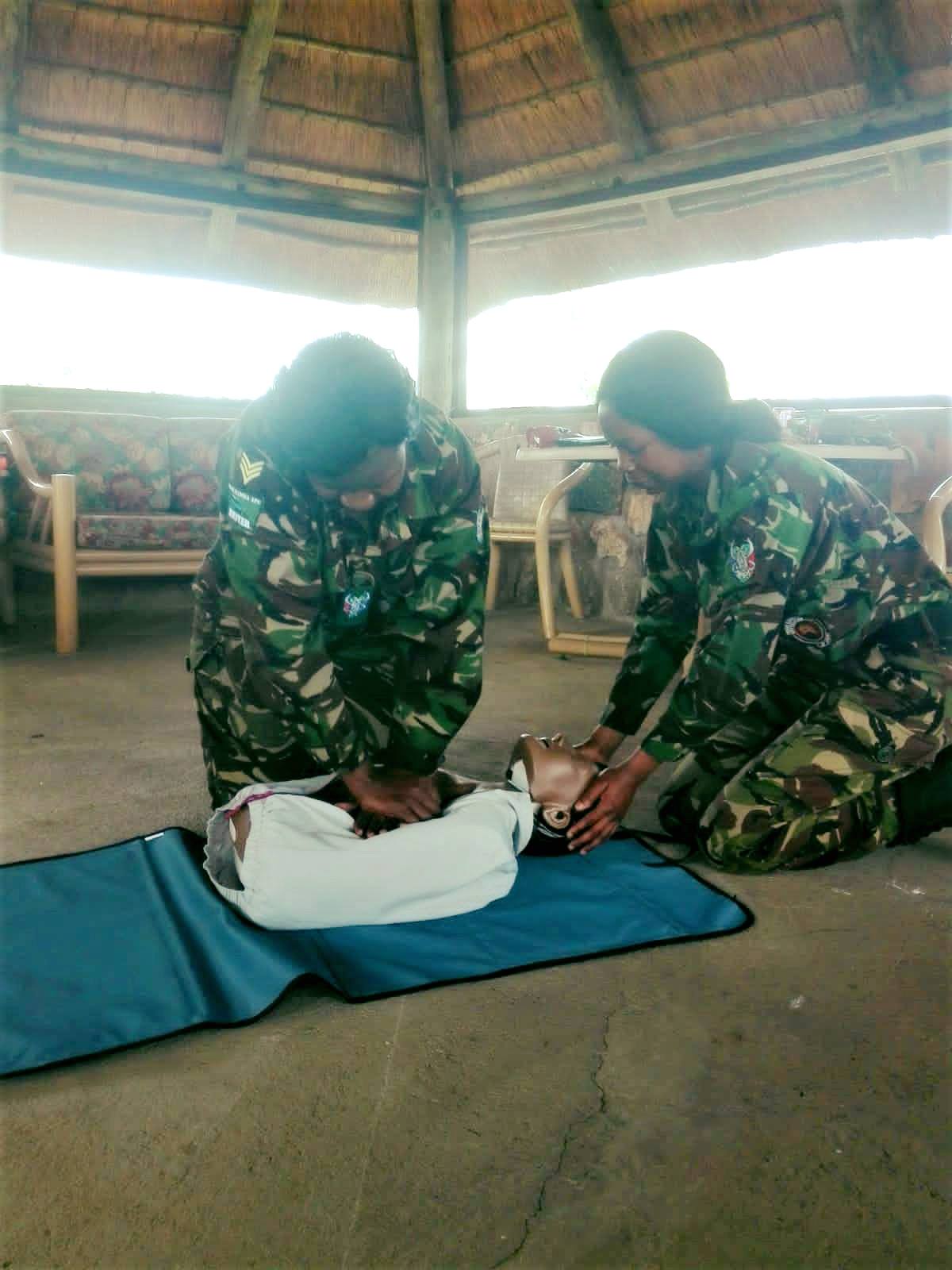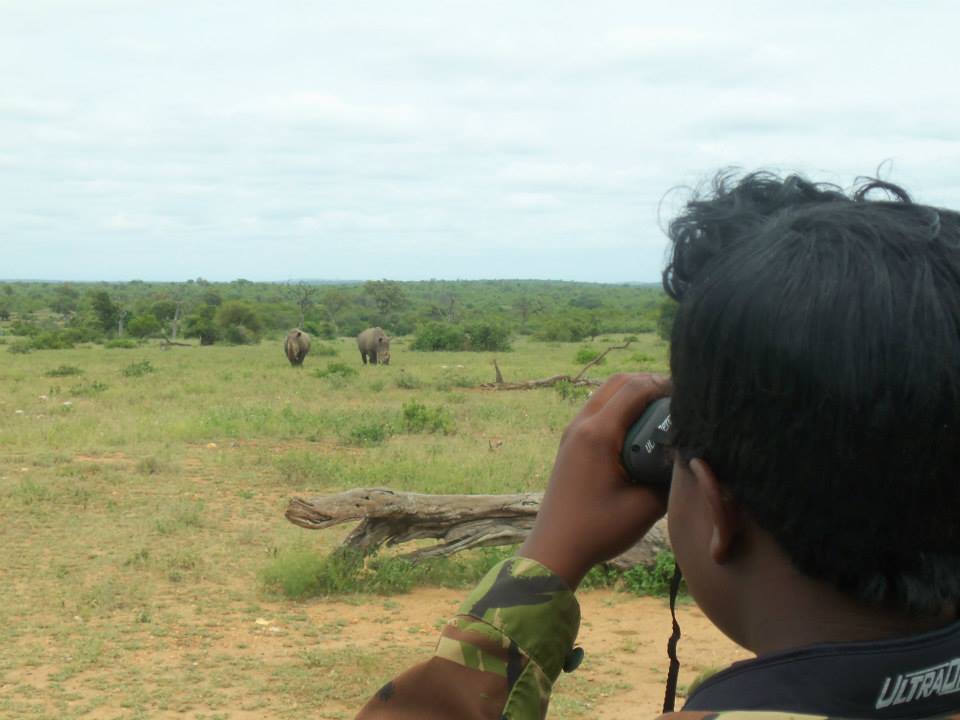



La sécurité de la faune sauvage ne se résume pas à des balles et à des bottes sur le terrain. Les Black Mambas constituent la première ligne de défense. Ils sont les yeux et les oreilles de la réserve et ne sont pas armés. La militarisation de la sécurité des espèces sauvages peut créer des conflits entre les communautés et les zones protégées. Bien que les forces armées soient nécessaires, il est essentiel de créer un lien entre la communauté et la réserve par l'intermédiaire de gardes forestiers qui ne sont pas impliqués dans l'aspect militarisé de la conservation. L'objectif est de créer une plateforme positive où les femmes sont considérées comme des modèles pour leur famille, les enfants de la communauté et les autres membres de la communauté.
- Autonomisation des femmes rurales par la création d'emplois et le développement des compétences
- Formation paramilitaire et anti-braconnage
- Formation dans d'autres domaines tels que la conservation, l'implication des communautés, l'éducation à l'environnement
- Création d'environnements de travail sûrs et sains pour les gardes forestiers féminins
La présence de femmes au sein de la main-d'œuvre peut susciter une certaine résistance au sein des communautés ou de la part des gestionnaires des zones protégées, car ce n'est pas la norme. Il faudra de la persévérance pour montrer que les femmes gardes forestiers sont les candidates idéales pour protéger les zones naturelles, car elles ont des compétences différentes de celles des hommes et il est essentiel que les compétences des hommes et des femmes soient utilisées les unes comme les autres. Il faudra du temps avant que les opinions changent et que les femmes rurales puissent devenir des membres actifs dans le domaine de la sécurité de la faune et de la flore.